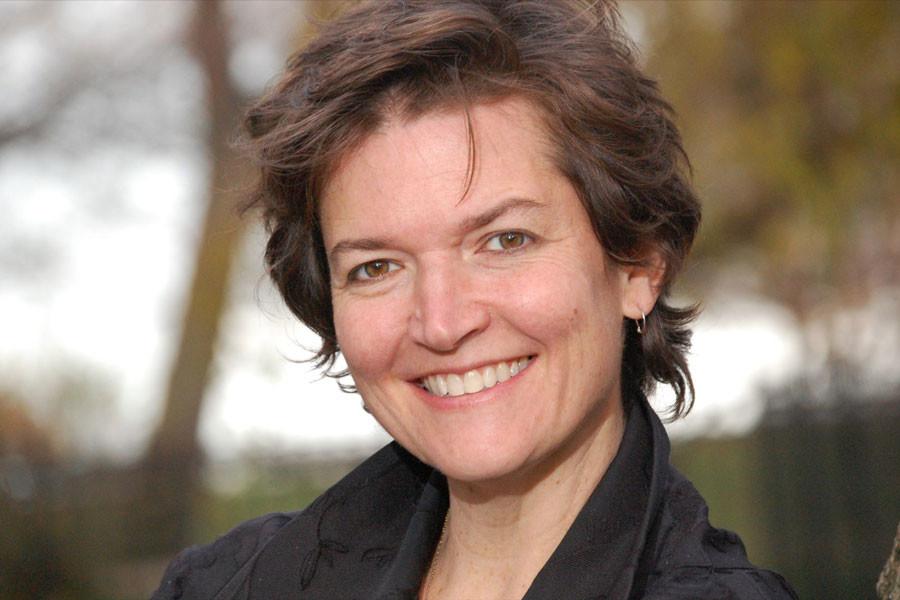NU professor directs production for Windy City Playhouse’s Premiere Season
Jessica Thebus
October 28, 2015
A&E
In its opening season in Chicago, the Windy City Playhouse tapped Northwestern professor Jessica Thebus to direct the dark comedy “Chapter Two.”
Set in the 1970s, the play is a semi-autobiographical piece about a spy novelist who starts dating again after his wife’s death. “Chapter Two,” which runs from Oct. 28 to Dec. 20., is a production written by contemporary playwright Neil Simon known for “Lost in Yonkers” and “The Odd Couple.”
The desire to tackle challenging, contemporary work drove Thebus, the director of NU’s MFA in Directing program, to direct the show.
“(Neil Simon) uses humor and has very elegantly created four characters to tell his own story,” Thebus said. “We’re just having fun working with the style of it and the truth of it. The style is very funny and the truth is very tragic.”
Directing plays written by Neil Simon presents unique challenges with energy, language and pacing, said Amy Rubenstein, the artistic director of Windy City Playhouse. Rubenstein also plays the character Jennie in the show.
“Jessica was on the top of our list of who we wanted to work with,” Rubenstein said. “It takes someone with a sense of the right rhythm and someone who can create a real, truthful world, through this stylized language.”
Thebus’ conception of the play has also embraced realistic design in everything from the setup of the two main apartments to the clothes and props that recall the 1970s.
“We had a lot of fun with things from the 70s, especially with the telephones and the way they used to be — that’s a big part of the show, just walking around with the cord twirling around your fingers,” Thebus said. “I think the things like the songs and fashion, too, are so beyond-belief cool. It’s so ridiculous in its realism.”
When working with actors, Thebus’ directing style is quick-witted and fast, said Brian McCaskill, who plays the protagonist, George Schneider. In scenes with many shifts in emotion, Thebus helped him break down how he moved, which helped him get to the heart of the trickiest parts of the script, he said.
“She’s (directed) for so long that she can get to the meat of the scene right away,” McCaskill said. “There’s a lot of directors who know what they want to get to, but Jess is great at explaining it and making it clear.”
Ultimately, though the play deals with tough issues like death and grief, Rubenstein said Thebus has done a good job at blending together the light and darkness in the show.
“It has a lot of depth and darkness to it, and she doesn’t allow any of the actors, myself included, to wallow in the sorrow of the play,” Rubenstein said. “ She’s kept us all on our toes.”
With this show, the company has switched to a different staging configuration and different designers than it usually uses.
“The personality of theaters are always different,” Thebus added. “It is a new space, so it’s a new configuration — there’s a lot of exploration to do and some bugs to get ironed out. It’s been delightful — (the Playhouse is) really welcoming, hardworking and idealistic.”
Rubenstein said it’s not just Thebus’ incredible talent, but also her sense of teamwork that has made her great to work with.
“It’s wonderful to work with someone who’s so kind… someone who really understands that theater is a collaborative art, and that no one person is more important than another in the process,” Rubenstein said.
At the end of the day, McCaskill said he hopes the audience can connect to the conflicting emotions and energy that he, Thebus and the rest of the team have worked to portray.
“You can talk about tragic things in an interesting way in comedy,” McCaskill said. “I’m curious to see if it all gets through, and I hope I’m doing that. I’m curious to see how it lands and what people will laugh at.”
Email: [email protected]
Twitter: rdanielle1995


